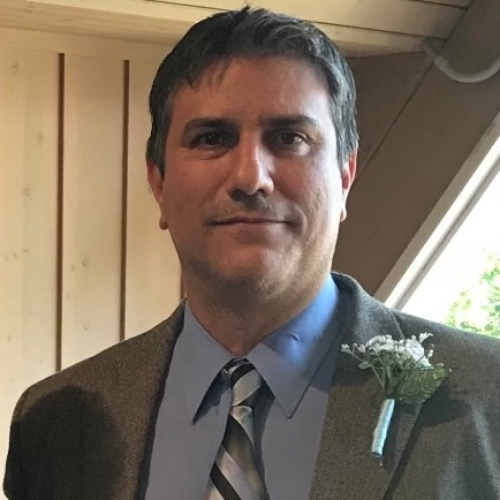-
The Parable Of The Prodigal Son
Contributed by Shawn Miller on Nov 28, 2017 (message contributor)
Summary: Exploring the progression of a sinner in the prodigal son: from his wanting independence, which lead to his shame, which lead to his repentance, and his brother's jealousy of his grace received.
The Parable of the Lost Son
Introduction: In his book, What’s So Amazing About Grace , Phillip Yancey tells the story of Ernest Hemingway. Hemingway grew up in a very devout evangelical family, and yet there he never experienced the grace of Christ. He lived a libertine life that most of us would call "dissolute"… but there was no father, no parent waiting for him and he sank into the mire of a graceless depression. A short story he wrote perhaps reveals the grace that he hoped for. It is the story of a Spanish father who decided to reconcile with his son who had run away to Madrid. The father, in a moment of remorse, takes out this ad in El Libro , a newspaper. "Paco, meet me at Hotel Montana, Noon, Tuesday… All is forgiven… Papa." When the father arrived at the square in hopes of meeting his son, he found eight hundred Pacoes waiting to be reunited with their father. Was Paco such a popular name? Or is a father's forgiveness the salve for every soul? (SOURCE: Rev. Brent Eelman, D. Min. Northwoods Presbyterian Church, 1998.)
Transition: We are going to explore a deeper meaning of the parable of the prodigal son. Not a new meaning, we are only going to a closer look. I could write twenty pages about all of the incredible lessons learned from this great parable but I want to give you four things to consider. First, the sinners independence.
The Sinner's Independence (v.11-13a)
“Jesus continued: “There was a man who had two sons. The younger one said to his father, 'Father, give me my share of the estate.' So he divided his property between them. Not long after that the younger son got together all he had and set off for a distant country. . .” Luke 15:11-13a
The younger son represents the sinner, therefore represents us all, as Romans 3:23 says “for all have sinned and fallen short of the glory of God.” The younger son says “Father give me my share of the estate.” He doesn't ask his father or even tell his father he plans to leave, he just tells him to give him his inheritance. There is no kind request. There is no polite address. There is not even so much of an explanation as to why he wants to leave. He just says 'give me what is mine'. It's bad when we view God's gifts that are given to us, as debts that are owed to us. The prodigal son doesn't say respectfully “Father give me a little and see how I do with that and if it pleases you then you can give me what you want.” No. He says 'Father give me MY share of the estate' He seems to be content to have his portion and let the two of them go their separate ways. How selfish are sinners? We don't even consider the feelings of their own father! Prodigals don't see their own father's love nor do they want to. The sinner sees only God's “oppressive” laws and “strict” rules. That is what religion has come to mean to many people, and whats worse is that many like the oldest son, love religion because in their own eyes it elevates them above their brothers. If they can work harder out in the field of religion and do more religious deeds than others then they feel that they are morally superior to their brother.
The father is very gracious and kind and instead of being harsh with him he gives his son what he asks for: “... So he divided the property between them.” (v.12) Our God is a kind, good, fair, and loving father. Like the prodigals father who gave his son so much yet he doesn't seem to appreciate or acknowledge it. He gave his son the gift of life, the gift of a loving home, the gift of love, the gift of property. He is a good and gracious father.
The prodigal son doesn't care about any of that. “Not long after that the younger son got together all he had and set off for a distant country . .” (v.13a) He was wanting to break the apron strings and prove himself, his own man. Like all prodigals, He assumed he knew better than his father. (I think many parents can relate to this) There are more young people ruined by pride than by all other lusts put together. Adam and Eve ruined us all because of their desire to be independent. His parents were cramping his style and he wanted to bust loose and enjoy his life. We suspect that he was wanting to do something in a distant country that he wasn't comfortable doing near home. He thought 'if I could get out from the watchful eye of my father I can finally experience freedom and have the liberty to make my own rules and live by my own standards. I can run out to satisfy all my pleasures and lusts.' As the evangelist Joseph Clark said “Many a man has had precisely the same lucky suggestion presented to his mind by the great enemy, (the devil).” How deceitful is the Sinner's independence? The prodigal son thought so much of the sweetness of the world that he couldn't dream of staying at home. This is the empty promise of sin.

 Sermon Central
Sermon Central



